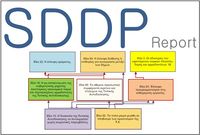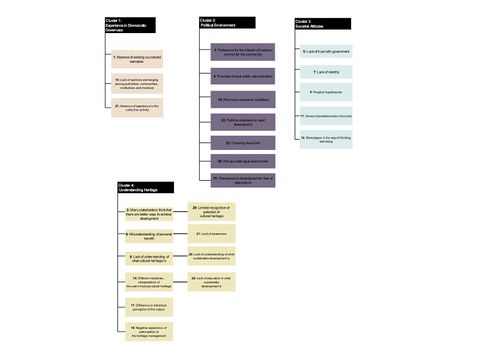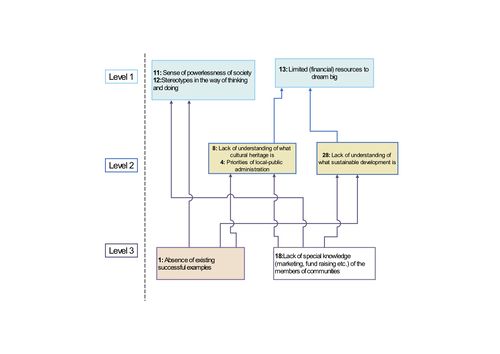Faro Convention Lab, SDDP Georgia
|
Executive Summary
The Faro Convention Lab in Georgia primarily worked with countries that have signed and ratified the convention and are in the process of identifying various ways to implement the Convention. In addition, member and/or observer states, which show interest in better understanding the Convention, were invited. At the local level, together with a local initiative in the Machkhaani village (Sighnaghi municipality), the lab explored a community-based, democratic socio-economic model for community engagement through Faro Convention principles and approach. The specific workshop session was designed using the SDD methodology to facilitate:
- Dialogue to foster collaboration between local and central government, local people and local business and other local actors;
- Democratic Socio-Economic models (including the business community) for community engagement.
SDDP
The project was implemented using Structured Democratic Dialogue (SDD). The dialogue was conducted by Future Worlds Center on an invitation of the Council of Europe to provide support to the local community engage all relevant stakeholders and help them understand and appreciate how cultural heritage could facilitate socio-economic development. At the same time, the experts of the Council of Europe wished to experience the application of the SDD process in order to consider its inclusion in the pool.
The Triggering Question (TQ) was
What challenges do we face in our effort to help all stakeholders understand how cultural heritage could facilitate socio-economic development?
In response to the TQ, the 13 participants came up with 31 Ideas, which were categorized in 4 clusters. Following the voting process, 17 ideas received one or more votes and 8 were structured to create the influence MAP.
According to the participants of this workshop, the following challenges appear to be the most influential:
- Challenge 1: Absence of existing successful examples
- Challenge 18: lack of special knowledge (marketing, fund raising, etc.) of the members of communities


